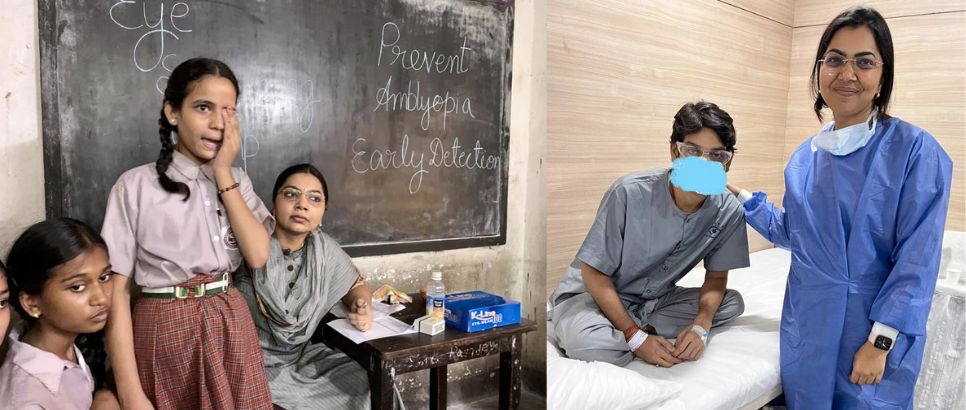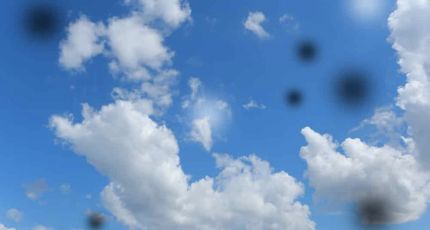
NAMASHKAR!!
Now that we have learnt and understood the importance of flattening the curve of COVID-19 pandemic, we also need to acknowledge that there might be multiple spikes of SARS CoV2. The health of oneself, our staff and our patients should be our first priority.
Escalating costs & basic running expenditure and at the same time the dwindling number of patients are adding to the economic burden of an ophthalmologist. The patients which we postpone now are going to become acute in the near future if the lockdown extends.
Friends, it seems we are learning and unlearning between ‘Time is Money’ and ‘Health is Wealth’!
We need to adapt to changing situations. The process for this adaptation will depend upon the following variables:
- 1. Practice Type: Solo or Group; Corporate hospital or an academic based Institute.
- 2. Place of surgery is self-owned, neutral surgical center, or hospital.
- 3. State of practice:
- Recommendations &/or Mandates from the local/state/central governments.
- Guidance from the state or medical societies.
- Whether any hotspots or COVID clusters in the neighbourhood of the practicing area.
We work as a team and the willingness of our team to adapt on a daily basis to the changing situations and scenarios is important.
Action is needed now and after lockdown & crisis period:
- 1. Request vendors for delayed payment of EMIs, request landlords to waive off full or part of the rent.Call on Force Majeure clause if needed.
- 2. Arrange for Personal Protective Equipment(PPE) for all the staff and doctors.
- 3. Staff can be counseled to work more after the COVID 19 period, maybe even a few hours on Sundays. They can be asked to use their leave period now. The salary deduction may be contemplated depending upon the staff level. Salary should not be deducted for staff with low pay and more liabilities at home. Scenario changes depending upon how long the staff has been associated with you and their dedication towards the center.
- 4. Make the best use of your EMR, software, social media platforms in keeping the patients communicated. Inform them about taking prior appointment bookings, mode of payment, wearing masks and bringing nil to only 1 attendant when they come for visit. This will also save communication time with patients.
- 5. Triaging patients over the phone has importance in reducing OPD rush:
- Postpone nonessential appointments. This also depends upon the needs of the patient, example refraction may be essential for someone with higher refractive error, broken specs, or even lower refractive error with active needs.
- Planning spaced outpatient visits. Patients may be asked to wait in their vehicle outside and enter clinic only when they receive a call from reception as to when their turn is about to come. Segregate patients on the basis of age and infective status, for example, elderly, diabetics, refractive error patients can be called at a particular time or slot of the day whereas infective patients like those suffering from conjunctivitis can be called in another slot.
- Virtual visits or e-consultation can be done by various online platforms available or even a WhatsApp or facetime audiovisual communication. This will reduce the number of visits or reviews per patient. It will specifically be more beneficial for patients residing in remote areas, elderly patients with comorbidities, and patients with fever and cough who cannot attend OPD in person. Keep the patient name, age, video for records and use your own judgment for reviewing or referring these patients.
- 6. Be medicolegally vigilant. Do not hold down your defenses in the process of extending a helping hand. Get a consent both from patients availing teleconsultation and from patients opting to attend the clinic during a COVID crisis.
- 7. Try your best in preventing any cross infection:
- Use of surgical masks, cap, waterproof gowns, visors, gloves by the doctors and staff. Frequent cleaning of hand with soap and water or 70% alcohol-based sanitizers. Staff should change into uniform after entering the clinic.
- Chemoprophylaxis with HCQs for the doctors and health care staff should be considered based on individual judgment and suitability. Only essential staff should be called. If any staff develops cough &/or fever, he should be sent into quarantine.
- Patients may be asked to open shoes at entrance or use shoe covers. Floor, door handles, tables should be cleaned with diluted household bleach solution/ 1%Na Hypochlorite, multiple times of the day. The center should be kept well ventilated with as much natural light as possible. AC filters should also be frequently cleaned. Closed bins should be used for disposal. UV irradiation &/or formalin fumigation of the center may be done frequently.
- Patients should be asked to give proper history over the phone regarding any h/o fever, cough, contact with COVID patients. They should maintain health etiquettes like washing hands-on entering clinic or using hand sanitizer at the entrance. They should wear masks and speak only what is required.
- Minimum waiting time for patients should be emphasized. Avoid multiple room visits d multiple reviews of the patients. NCT is a NO. Avoid and postpone investigations that require contact with a patient or longer time at the clinic. Disposable applanation tonometer if available should be used or tips should be cleaned with 1% Na Hypochlorite or alcohol solution. Trial frames and OPD lenses like +90D/+78D/+20D should be cleaned in between every patient. Mount screens between the patient and doctor on the slit lamp. Speak as little as possible and give in writing to the patient. Maintain a distance of >1m with all patients and staff. Reduce your OPD time.
- Discourage patients to try multiple optical frames. The ones which have been tried should be cleaned before placing them back on shelves.
- Discourage cash as a mode of payment. Instead, plastic money in the form of Paytm, G-Pay, Netbanking, cards should be encouraged. Else patients should be asked to give a proper amount of bill without the hassles of change.
Most of us have postponed our nonessential surgeries for now till the indefinite period. But gradually the patients will lose patience. Postponing surgeries for a longer time will only add to the financial stress of the practitioner. In an ideal situation, any patient being taken up for surgery should undergo a COVID PCR testing and an HRCT. Till now there have been no directives from the government of any mandatory preop COVIDtesting. Given the limitation of finances in a developing country like India, patients can be taken up for surgery if the surgery is urgent/essential or the patient has been waiting for surgery for a long period of time. Paramedics, OT staff should be educated and trained accordingly. HIV kits may be used and the surgeries may be spaced out, keeping only a few per day.
Since we all are having some extra time now, try to make the best use of that. Work on your website, google page, profile. Update yourself with the latest in academics. Update all your accounts, patient details, billing, etc. Analyze your performance over the last few years. Etc
Friends, this COVID crisis is in an Unpredictable and Volatile situation now. Be Mentally and Financially Prepared for similar such events in the future.
As the famous saying goes, Lets Be prepared for the worst, but Hope for the Best!
You Might Also Like
Popular Posts
-
 Conjunctivitis Condi...
Conjunctivitis Condi...3 June 2023
-
 Glaucoma: Silent Thi...
Glaucoma: Silent Thi...26 Mar 2023
-
 Cataracts: Your eye....
Cataracts: Your eye....17 Jan 2023
About Us
The Eye Clinic brings all the modern equipment & experienced doctors providing high-quality eye care affordably.

